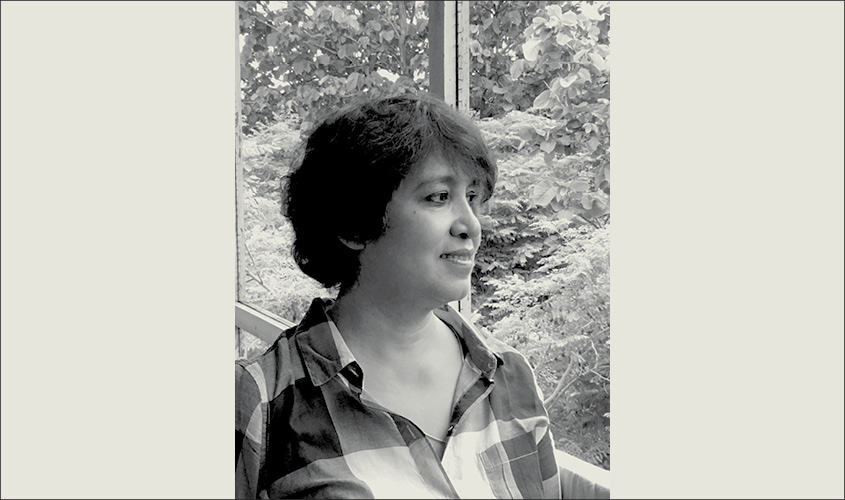Acclaimed writer taslima Nasrin speaks to Latha Srinivasan about her views on feminism, secualrism, free speech and democracy—subjects she continues to address in her writings.
She is someone who has seen the best of times and the worst of times. Award-winning author Taslima Nasrin calls herself a feminist and secular humanist, and she never shies away from speaking her mind. Though she has been banned from Bangladesh and West Bengal, the author’s ties with the people there are strong as ever. Many of her books have been banned there. One such book—Dwikhandito (Split)—is finally out in English nearly 15 years after it was first published. In this exclusive interview with Guardian 20, Nasrin talks about the book, her idea of feminism, and what freedom of speech means
to her.
Q. How do you feel, now that your banned book—Dwikhandito (Split)—is out in English?
A. I am glad that the book has been translated into English and published by Penguin. The banned book was also published in different languages in India. Everybody should read the books that are banned. This may not be possible as the banned book will not be available to readers. But they should try to procure it by any means and judge for themselves whether the ban was justified. If they don’t find any rationale for imposing the ban, they should raise their voice in defence of freedom of expression. In a democracy, it is the people’s voice which matters. Important books get banned. Why? Because authorities are always scared of ideas which are not conventional. They have a closed mind which likes nothing but stereotypes.
Q. You’ve spoken about your personal relationships in the book. How much did those relationships shape your thoughts and
ideology?
A. I do not like to hide the truth. Relationships have never influenced my thoughts and ideology. In fact, it is the other way around—that I enter into relationships because of my ideology, which gives me the courage to challenge the conventional morality and social mores. Even though I challenge patriarchy, I have no problem loving man. However, I must admit that I could not judge every man correctly and even loved the wrong men, even misogynists. But I never hated man. I learn about misogyny and patriarchy while in relationships. [I have] met many men who pretend to be progressive but are misogynistic inside.
Q. You are a doctor who forayed into writing. You’ve mentioned that you didn’t get enough time to write, so you shifted to medicine. Other than the obvious political situation at the time, what compelled you to make your voice heard?
A. What forced me to raise my voice was that secularism was under threat. The Constitution of Bangladesh was amended to make Islam the state religion. If secularism is buried, not only minorities but even women as a whole suffer beyond measure. All this jolted me from within. I always protested against the slightest of injustices. So, it was but natural for me to speak up. Remaining silent at such critical junctures was simply impossible for me. History is replete with incidents when people made the supreme sacrifices to uphold the truth.
Q. When you wrote criticising Islam and the fundamentalists, did you not fear any repercussions at all? Or were you prepared to face all the challenges, like the fatwa that was issued in your name?
A.I never imagined that there would be protests by some 400,000 fanatics who would gather demanding my execution by hanging, and that I would be forced to leave my country, my own beloved country. I knew I was telling the truth, so I was not afraid of religious fanatics who want to move backwards.
Q. When the fatwa was issued against you, what was your first thought?
A. My writings upset religious fanatics and misogynists who deny equal rights to women and minorities. And so, they began protesting from the beginning but the fatwa was something inconceivable for me. A price was set on my head. What is baffling is that the government did not take any action against those mullahs who openly asked Islamists to behead me for a price. Instead, the government filed a case against me on the charge of hurting religious sentiments of the people. I had to go into hiding while the obscurantists were roaming free. Thus, the government victimised the victim. And ultimately, I was forced to go into exile for no fault of mine, as you know.
Q. Your arguments on Islam mainly seem to stem from
A. Not only my life, I have seen other women’s lives too. How they are oppressed because of anti-women tradition, culture, customs and religion. I have also read holy books, I have problem accepting them as holy, though. Islam has been largely exempted from the critical scrutiny that was applied to other religions. I believe Islam has to go through the enlightenment process other religions have gone through by questioning inhuman, irrational, unscientific aspects of religion.
Q. Is freedom of speech absolute freedom for you?
A. Yes, freedom of speech should be allowed until one turns violent. Violence must not be allowed. Fatwas, death threats are open calls for violence. It cannot be considered as freedom of speech.
Q. What do freedom and feminism mean to you today?
A. For women, feminism is a sine qua non for freedom. Feminism is freedom to me. Feminism ensures women are humans, and they deserve to have freedom and rights exactly like men deserve to have freedom and rights. Women won’t get their freedom if feminism is not considered an essential part of human rights and of democracy.

